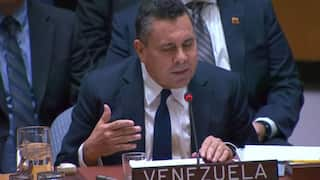India Does Not Believe In World Order Where A Few Are Considered Superior To Others: Rajnath Singh
Defence Minister Rajnath Singh spoke about India’s vision of the Indo-Pacific at the Indo-Pacific Regional Dialogue (IPRD) in New Delhi

New Delhi: Defence Minister Rajnath Singh on Friday said that India stands for a free, open, and rules-based Indo-Pacific as it is important for the economic development of not only the region but also the wider global community. He asserted that India does not believe in a world order where a few are considered superior to others.
Delivering a keynote address at the Indo-Pacific Regional Dialogue (IPRD) in New Delhi, he spoke about India’s vision of the Indo-Pacific by quoting Prime Minister Narendra Modi’s statement during Shangri-La Dialogue in Singapore in June 2018.
“The Prime Minister had said that India stands for a free, open and inclusive Indo-Pacific region, which embraces us all in a common pursuit of progress and prosperity. He put forth our idea of ASEAN centrality in the region and said that our common prosperity and security require us to evolve, through dialogue, a common rules-based order,” the Minister said, as quoted in an official release by the Ministry of Defence.
Speaking at the ‘Indo-Pacific Regional Dialogue-2022’ in New Delhi. https://t.co/6nYs1MkbSX
— Rajnath Singh (@rajnathsingh) November 25, 2022
He stressed that dialogue is the only civilised mechanism for resolving disputes and disagreements and creating regional or global order, citing the Prime Minister’s message during the recent G-20 summit in Bali that “the era of war is over”. PM Modi's words were echoed by the world leaders, with the G-20 declaration mentioning ‘now is not the time for war’.
“In the times when humanity is facing problems like climate change, the Covid-19 pandemic and widespread deprivation, it is essential that we all work together to surmount these mammoth challenges, without being distracted by the destructive seduction of wars and conflicts,” Rajnath Singh said.
He described enhancing trade and connectivity, capacity building, and infrastructural initiatives as time-tested ways of working together, which can act as bridges of friendship and ensure mutual benefit. He stressed the need to leverage them collectively for the common good.
The Defence Minister mentioned the initiatives he announced during the India-ASEAN Defence Ministers’ Meeting held in Cambodia earlier this week. “We have proposed the ASEAN-India Initiative for women in UN Peace Keeping Operations which would contribute towards effective conflict resolution and lasting peace through a more humane approach. We have also proposed ASEAN-India Initiative on Marine Plastic Pollution Response towards improving the marine ecosystem,” he said stressing the need to work towards collective security and common prosperity.
ALSO READ | India Remembering Cultural Heroes With Pride: PM Modi At 400th Birth Anniversary Of Lachit Barphukhan
Rajnath Singh said that it was a moral responsibility to strive towards building a secure and just world and exhorted the international community to consider security as a collective enterprise to create a global order which is beneficial to all.
“National security should not be considered as a zero-sum game. We should strive to create a win-win situation for all. We should be guided by enlightened self-interest which is sustainable and resilient to shocks. Strong and prosperous India would not be built at the cost of others, rather, we are here to help other nations realise their full potential,” he said.
He noted how the global community has been working through multiple platforms and agencies, the foremost among them being United Nations Security Council. However, he said there was a need to elevate the paradigm of collective security to a level of shared interests and security for all.
Emphasising India’s belief in a multi-aligned policy through diverse engagements with multiple stakeholders, Rajnath said that addressing the concerns of all is the only way that can lead to shared responsibility and prosperity.
According to the Defence Minister, India’s actions are guided by the very essence of human equality and dignity, which is a part of the nation's ancient ethos and strong moral foundations. “Forging relations comes naturally to India as we work towards mutual economic development. It is thus apt that we all explore solutions to the problems such as terrorism and climate change that transcend national boundaries,” he added.
On the culminating day of the three-day IPRD, Chief of the Naval Staff Admiral R Hari Kumar spoke about the threats and challenges to India’s holistic maritime security and reaffirmed Indian Navy’s committed resolve in preserving the nation’s maritime interests.
He said that India is well positioned to be in the vanguard of the several providers of net security within the Indo-Pacific and is increasingly being viewed as the preferred security-partner, especially in the western segment of the region, namely the Indian Ocean. The Admiral reiterated the Navy’s commitment towards achieving ‘Aatmanirbharta’ in the defence sector.
On the occasion, the Raksha Mantri also released a book, published by the National Maritime Foundation (NMF) titled ‘Coastal Security Dimensions of Maritime Security’.
Related Video
Punjab News: AAP Leader Shot Dead During Wedding in Amritsar





































